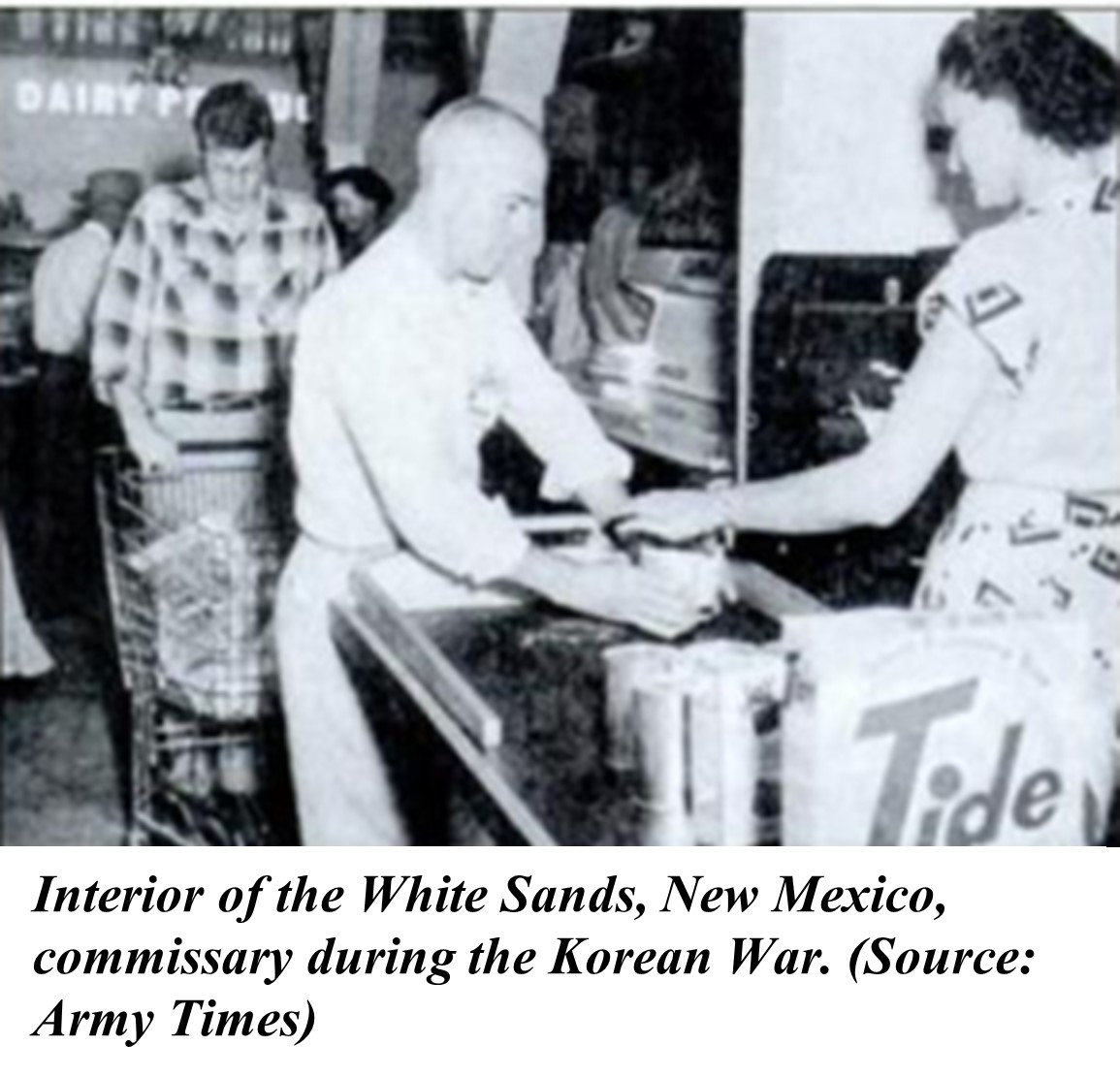

Read about Extended Eligibility
The Purple Heart and Disabled Veterans Equal Access Act of 2018 authorized the Department of Defense to expand access to commissary shopping privileges to:
- Veterans with any VA-documented service-connected disability;
- Purple Heart recipients;
- Former prisoners of war; and
- Individuals assessed, approved and designated as primary family caregivers to eligible veterans under VA’s Program of Comprehensive Assistance for Family Caregivers.
This will require most newly eligible veterans to present a Veteran Health Identification Card (VHIC) reflecting the proper designation in order to shop. Please contact the installation to inquire about local policies regarding installation access.
When you shop at Your Commissary, you can enjoy a shopping environment that exclusively serves the military community, with a workforce that understands your needs. Plus, studies show our customers save an average of 25% worldwide, compared to prices at commercial stores!
Please help us spread the word about this by sharing the following posts directly from our social media pages:
Facebook
X
Instagram
DeCA appreciates your commitment to service members and their families. We thank you for sharing these savings and the commissary benefit with our patrons.
Respectfully,
Norman E. Brown
Director of Marketing
Defense Commissary Agency

Commissary CLICK2GO reaches $100M in sales
 FORT GREGG-ADAMS, Va. – Commissary CLICK2GO, the Defense Commissary Agency’s (DeCA) online shopping and curbside pickup service, reached $100 million in sales on Feb. 16.
FORT GREGG-ADAMS, Va. – Commissary CLICK2GO, the Defense Commissary Agency’s (DeCA) online shopping and curbside pickup service, reached $100 million in sales on Feb. 16.
“This is a significant milestone for us because it shows the improvements that we’ve made to our online shopping experience, and that we are providing a strong benefit that our military community is using,” said Dr. Theon Danet, DeCA’s executive director of the IT Group and chief information officer. “We’re excited about the future of Commissary CLICK2GO and how we can add even more value for commissary patrons.”
The $100 million in sales was generated through 686,185 completed Commissary CLICK2GO orders since the service launched in May 2021. Basket sizes for those orders averaged around $125.
“Commissary CLICK2GO gives our customers the best of both worlds,” Danet said. “It allows them to place their orders online and save the time they would normally spend shopping in stores. Also, curbside pickup enables them to collect their orders at their convenience by choosing a time slot that works best for them.”
Using Commissary CLICK2GO, or CC2G, also provides additional benefits:
· Patrons have better control of their budget because it’s easier to see how grocery costs are adding up and make adjustments if they are exceeding their grocery budget. It can also help to prevent impulse purchases.
· Shoppers can make their preferences known with detailed notes and comments for individual items.
· Patrons have access to other savings resources through the website, such as viewing their local commissary sales flyer and product promotions, clipping digital coupons and learning about commissary store brands.
· CC2G offers cooking resources, such as recipes and dietitian-approved meal solutions, as well as product information like ingredients and nutritional facts for each product.
Marketing and outreach to commissary customers were vital to reaching the $100 million mark, according to Danet. In addition, the expansion of item availability at every commissary and the expansion of order windows contributed to more sales. Enhancements in the areas of information technology, payment processing, management and support were also key to the program’s efforts.
Patrons can access CC2G by logging into their shop.commissaries account from their computer or mobile device. The CC2G app is available for free download through Google’s Play or Apple’s App stores.
As DeCA looks to increase the benefits of the program for service members and their families, the agency is actively exploring how to add doorstep delivery to homes and onsite support to military units.
Commissary and Smucker’s partner to serve thousands at Mission: Breakfast

Weathering the storm

FORT GREGG-ADAMS, Va. – More than 6,000 active-duty, Reserve, Guard, retired and veteran service members and their families from the Joint Base San Antonio-Lackland, Texas, community enjoyed a free morning meal May 7 during the 15th annual Mission: Breakfast event.
The annual J.M. Smucker Company’s Mission: Breakfast event challenges commissaries to participate in a friendly competition to build and create an in-store display highlighting Smucker’s product line. The Defense Commissary Agency’s (DeCA) JBSA-Lackland Commissary took top honors in building the most creative product display during the June 2023 contest promotional period and won the distinction of hosting this year’s event.
“An event like this is really a part of the benefit that service members and their families earn by serving our nation. We want to thank you all for being here today, being a part of this event, and enjoying the commissary benefit you’ve earned,” said John E. Hall, DeCA director and CEO.
The event was open to the JBSA-Lackland military community and featured a free catered breakfast of pancakes, breakfast sandwiches, biscuits, sausages, chicken products, juice and coffee, with live music, fun activities and free company products.
“We want to give back to our military personnel,” said Mark P. Smucker, J.M. Smucker Company president and CEO. “We want to say ‘thank you’ for all that they do for our country – protecting our country,” he said.
Military ties run deep for the Smucker Family. Smucker’s grandfather and former company CEO, Paul Smucker, spent two years in the Navy, as a lieutenant assigned to the USS Cassin Young in the South Pacific during World War II. Smucker’s father, Tim, chairman emeritus at The J.M. Smucker Company, attended basic training at Lackland in 1969. It was Tim Smucker who started the Mission: Breakfast concept 15 years ago as a way to recognize troops.
“This event is awesome; it is an expression of the Smucker’s family appreciation and gratitude to our troops,” said Air Force Col. Billy Wilson, Jr., commander of the 737th Training Group at JBSA-Lackland.
Wilson is charged with training U.S. Air Force recruits. He said the 737th Training Group’s mission is “a commitment to young people by helping them to discover themselves through service to their country.” Wilson also said although the event is a great display of support for the troops, “it also provides an opportunity for our military community to say ‘thank you’ for everything you [The J.M. Smucker Company] do for us through the Lackland Commissary.”
Those sentiments were echoed by Navy Command Master Chief Mario Rivers, DeCA’s senior enlisted advisor. “This event is an awesome demonstration of the support and appreciation our young troops have from the nation,” Rivers said. “In addition, it also gives us an opportunity to not only thank them for their commitment to serve, but more importantly, to educate them from the start of their service on the many benefits they have available to them now and throughout their career.
“When shopping regularly at a commissary, you can save thousands of dollars each year compared to commercial retailers,” Rivers continued. “You save $50 for every $200 you spend on groceries if you shop your commissary. We are proud to deliver the best prices possible to our military community – a benefit you’ve earned through your faithful service.”
Previous winners of the Mission: Breakfast contest have included the following commissaries:
- · Naval Air Station Oceana, Virginia (2023)
- · Joint Base Pearl Harbor-Hickam, Hawaii (2022)
- · Marine Corps Base Quantico, Virginia (2019)
- · Fort Belvoir, Virginia (2018)
- · Naval Base San Diego, California (2017)
- · Eglin Air Force Base, Florida (2016)
- · Fort Carson, Colorado (2015)
- · Fort Bliss, Texas (2014)
- · Fort Sam Houston at Joint Base San Antonio, Texas (2013)
- · Fort Eustis at Joint Base Langley-Eustis, Virginia (2012)
- · Joint Base Pearl Harbor-Hickam, Hawaii (2011)
- · Langley Air Force Base at Joint Base Langley-Eustis, Virginia (2010)

Be healthier in 2024 with ‘Thinking Outside the Box’ to save money, time
Thinking Outside the Box meals offer quick, healthy and economical solutions for your busy lifestyle. They also include tips and suggestions on how to use the leftover items after preparing your meal. In addition to offering a nutritious recipe for a family meal, TOTB provides scientifically credible health and nutrition information with tips on how to improve the nutrition quality of the diet. Try using these for a month and see what happens to not only your food budget but also your waistline! They feature a key nutrient and align with the Dietary Guidelines for Americans and may even be a tastier and healthier version of a high-fat or high-calorie dish. Start new healthy habits with TOTB as well as with Dietitian Approved recipes.
Check out the Healthy Eats section online.
Applications now available for 2024 – 2025 scholarships
Applications have now opened for Fisher House Foundation’s Scholarships for Military Children program for academic year 2024 – 2025. The program recognizes the contributions of military families to the readiness of America’s fighting force and celebrates the commissary’s role in enhancing military quality of life. Fisher House Foundation, a nonprofit organization dedicated to helping service members, veterans and their families, administers the program. For scholarship year 2024-25, Fisher House Foundation will award 500 scholarship grants of $2,000 each. The selection process will begin following the application deadline of Feb. 14, at 11:59 p.m. PST. Read the entire news release online.
Commissaries customize website for online shopping
Commissary patrons now see a faster path to virtual shopping as the Defense Commissary Agency (DeCA) announces “shop.commissaries.com,” as its go-to website for access to services like online ordering, payment and pickup. Shop.commissaries.com replaced “commissaries.com” as DeCA’s patron-facing online site, streamlining the customer experience and making it consistent with other grocery retailers. Read the entire new release online.
Commissary patrons now see a faster path to virtual shopping as the Defense Commissary Agency (DeCA) announces “shop.commissaries.com,” as its go-to website for access to services like online ordering, payment and pickup. Shop.commissaries.com replaced “commissaries.com” as DeCA’s patron-facing online site, streamlining the customer experience and making it consistent with other grocery retailers. Read the entire new release online.

COMMISSARY FAST FACTS – ISSUE 273 – August 2024
 Make back-to-school meals easy and affordable with the commissary
Make back-to-school meals easy and affordable with the commissary-
Creating a Commissary CLICK2GO account if one has not already been established. New accounts submitted during the promotional period will automatically be entered.
-
Submitting a Commissary CLICK2GO order of $75 or more. New orders submitted during the promotional period will automatically be entered.
-
Registering at https://commissaries.com/rules for a chance to win during the promotional period.

Read more
FORT GREGG-ADAMS, Va. – July 27 marks the 71st anniversary of the Korean Armistice Agreement that was signed in 1953 in Panmunjom, Korea. The armistice officially ended the war that had begun on June 25, 1950, when North Korean forces crossed the 38th parallel separating South Korea from North Korea.
North Korean military forces captured the South Korean capital of Seoul before United Nations forces, led by the United States, pushed them back all the way to the border of Korea and China. By November 1950, China had entered the war, and for the next two years, the opposing forces waged indecisive combat until the U.S., North Korea and China signed the armistice agreement to end the hostilities on the peninsula. South Korea never signed the agreement because it regarded a divided Korea as unacceptable.
The men and women who served during the Korean War were known as the Silent Generation. They lived through McCarthyism, a campaign against alleged communists in the U.S. that was carried out by Senator Joseph McCarthy. Many people accused of belonging to the Communist Party were blacklisted, and some lost their jobs, even if the allegations were not true.
In the U.S., the Great Depression of the 1930s and World War II in the early to mid-1940s caused many Americans to decide to have fewer children than previous generations. The Silent Generation were known for their traditionalist behavior and their desire to work with the system rather than try to change it.
Many of the service men and women in the Korean War were born at or near the beginning of the Great Depression. They were children during World War II, and many of their fathers served overseas during the war. Besides surviving the Great Depression, these people also survived the Dust Bowl from 1930 to 1940 when the drought stricken southern plains of the U.S. suffered severe dust storms as high winds and choking dust swept from Texas to Nebraska. Many people and livestock died as a result. The circumstances of their upbringing led many of this generation to adopt cautious, conscientious behavior.
The Korean War provided the first confrontation between two nuclear powers, and as the war progressed, the conflict demonstrated how difficult it would be for either side to use atomic bombs decisively in battle. The war debuted the first U.S. use of jet fighters in combat, such as the Air Force’s F-80 Shooting Star fighter jets.
By 1950, the American commissary food standards were the best in the world, according to the Defense Commissary Agency’s (DeCA) first historian, Dr. Peter Skirbunt. The advertising industry was at its peak, and both civilian grocery stores and military commissaries started promoting their products. Television and radio commercials used big wording to grab the attention of consumers, and inside the stores, elaborate displays and bright colors piqued shoppers attention.
By this time, commissaries were all self-service rather than customers handing a list to a clerk behind a counter. Customers walked through the stores and selected their own items. There was a much larger variety of products by 1950, and nationally branded items were available in all commissaries. Plastic film and wrapping machines allowed for prepared, pre-packaged fruits and vegetables in many commissary stores.
It was during the Korean War, on January 1, 1952, that a surcharge started being collected at all U.S. Army commissaries. The surcharge was used to pay for operating equipment, supplies, utilities, and merchandise losses and spoilage.
From 1953 to 1959, there were six major supply points for ground troops in South Korea. Three of them issued rations and made bulk sales: Supply Point 46 at Taejon, Supply Point 41 at Seoul and the 55th Quartermaster Depot at Ascom City. The remaining three only issued rations: Supply Point 48 at Busan (previously anglicized as Pusan), Supply Point 47 at Taegu and Supply Point 39 at Uijongbu.
Families could not accompany members of the armed forces to duty stations in South Korea until the late 1950s, after the political and military situations stabilized. This prompted the start of several commissaries in country. In 1959, for instance, stores opened at Army posts at Camp Walker, Camp Henry and Supply Point 47 in Taegu. Commissaries opened at Naval Air Station Chinhae; Seoul, South Korea; and Camp Hialeah (at Busan) in 1961.
Stores continued to open in South Korea throughout the 1960s, including Hannam Village in 1968. In the early 1970s, stores opened at the key Air Force base at Osan and the Army base at Yongsan. Through 2006, commissaries also opened at Camps Carroll, Casey, Edwards, Howze, Humphreys, Page, Red Cloud and Stanley.
In 2022, President Joseph Biden proclaimed that July 27 would be forever known as National Korean War Veterans Armistice Day. Three years after the Korean War Memorial was completed, the national observance was established in an amendment of U. S. Code Title 36.
Nearly 1.8 million Americans fought during the Korean War, and about 767,000 Korean War veterans remained living in the U.S. as of 2023.
“Korean War Veterans Armistice Day is a national day of recognition that honors the U.S. service members who served, laid down their lives, and are still missing in action,” said Navy Command Master Chief Mario Rivers, senior enlisted advisor to the DeCA director. “As we mark this milestone, may we always remember their bravery and sacrifice in defense of democracy.”
The military commissaries that opened in South Korea in the late1950s began a legacy of service that continues to support those stationed there to this day. Currently, there are nine commissaries in South Korea: Camp Carroll, Camp Casey, Camp Humphreys, Chinhae, Daegu, K-16 Air Field, Kunsan Air Base, Osan Air Base and Yongsan. These commissaries are a vital resource for service members and their families, providing them with affordable groceries and household goods.















